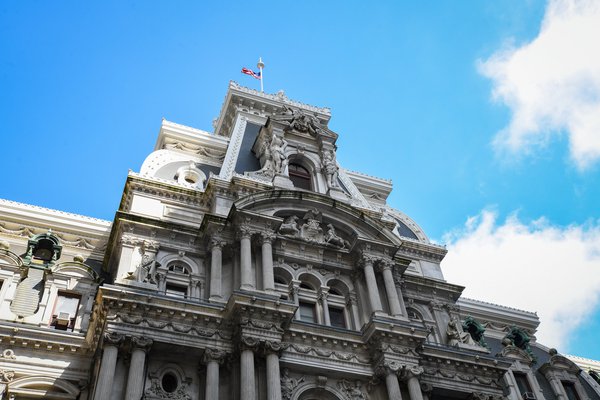Philadelphia Mayor Jim Kenney and Health Commissioner Dr. Thomas Farley answered questions Monday in the wake of the resignation of deputy health commissioner Dr. Caroline Johnson, who admitted to playing a key role in the selection of Philly Fighting COVID as a vaccine partner.
Johnson, who resigned over the weekend, told the Office of the Inspector General that she had an email correspondence with Philly Fighting COVID CEO Andrei Doroshin, who unfairly received budget advice from Johnson in his RFP bid to open up the city's first mass vaccination clinics in January.
Philadelphia broke ties with Philly Fighting COVID last week after learning the company had established a for-profit arm, updated its terms of service to allow for the sale of personal data collected on its website, and discontinued COVID-19 testing services that had been run in partnership with the city for months.
- RELATED ARTICLES
- What the data show on delaying COVID-19 booster shots
- Can the U.S. keep COVID-19 variants in check? Here's what it takes
- Getting the COVID vaccine? Don't take painkillers before, experts say
Johnson provided a similar unfair advantage to the Black Doctors COVID Consortium, which has been running vaccine clinics to reach vulnerable minority populations in Philadelphia.
"It appears that this was an attempt to simply move vaccine to people's arms more quickly and more efficiently," Farley said Monday. "Nonetheless, these emails were not consistent with the purpose of our Request for Proposals. The purpose of the RFP is to provide all information to all of the applicants at the same time."
Farley called Johnson's departure "a real loss" to the health department, where she has been an expert on infectious diseases for years.
The health department has passed the Philly Fighting COVID investigation over to the Office of the Inspector General, which will look into various allegations and potential lapses that occurred in the health department's dealings with the organization.
Moving forward, the city will reissue an RFP and put in place a larger review team to sort through potential vaccine partners. A larger health department vaccine team also has been assembled to better execute and communicate the city's vaccine plan to various stakeholders.
Farley said he does not plan to resign from his position, despite calls from some state legislators for him to do so.
"I feel that I can still contribute to this response," Farley said. "I serve at the pleasure of the mayor, and if at any point the mayor feels that I'm not the appropriate person to lead the response with the health department, he can simply ask me and I'd be happy to leave."
"And I'm not asking," Kenney added.
To date, about 100,000 Philadelphia residents have received the COVID-19 vaccine. The city continues to receive approximately 23,000 total vaccine doses per week.
Farley said that there are questions about a small number of missing vaccine doses that had been issued to Philly Fighting COVID. Doroshin has admitted that at least four doses were taken and administered to his friends, and Farley said any additional missing doses would be limited in number, as the city can accurately reconcile most of its supply.
Health department staff have already begun holding their own mass vaccination events to deliver second doses to individuals who received their first shots through Philly Fighting COVID. Those clinics will continue this week and next as the health department takes over until a new vaccine partner is selected.
"As more vaccine doses become available, we expect that other partners will be providing clinics like that," Farley said. "These mass clinics are just one channel of the many ways in which the vaccine is being made available across the city."
In addition to the clinics, Philadelphia hospitals are bringing in their own patients for vaccination, federally qualified health centers are vaccinating patients in their clinics, and 26 Rite-Aid locations are providing vaccines to those who are eligible. The city will expand the number pharmacies offering the vaccine as the supply increases.
In the wake of the split with Philly Fighting COVID, Farley said the city is going to do its best to stay ahead of the curve with its vaccination plan.
"We're going to try very hard to have it not slow down the process," Farley said. "Our biggest limit really is the number of doses we have. We're going to work very quickly. We do need to work very quickly to get it in, and we may have to ask some providers to work without any funding, at least at first, so that it doesn't slow things down."
The health commissioner said many of the department's processes are now being reset to prevent future missteps or problems with communication.
"Working with this organization was the mistake of the department," Farley said. "We've acknowledged that mistake. We're working hard to both improve our processes, so we don't make similar mistakes like that in the future, and to fix any problems caused by that mistake."

